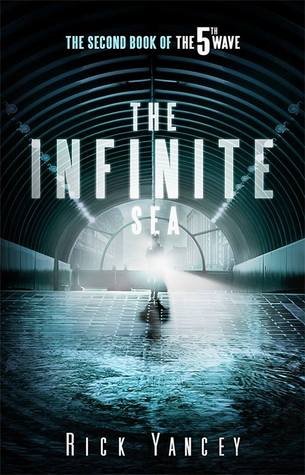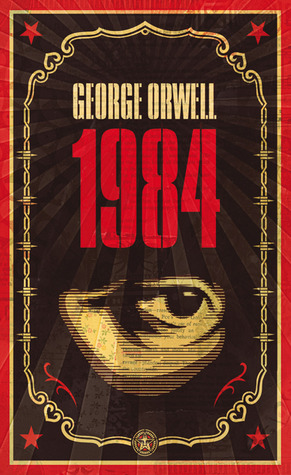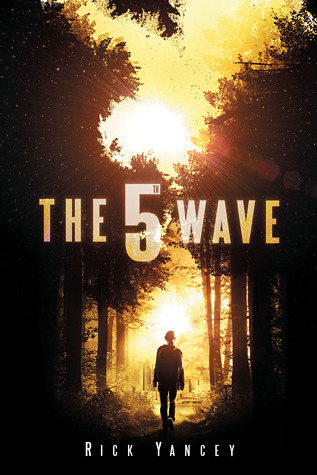When the game starts, the players will have to find three keys. The keys are somewhere on earth. The only rule of their Endgame is that there are no rules (Goodreads).
Having not read The Hunger Games, I was able to read this novel pretty much unbiased, but from what I know of Collins' series, Frey's story is definitely not the same. With that out of the way, this novel was very enjoyable. Each character is developed well, and the frequent swapping between them leads to near-perfect pacing. Having so many competitors be morally ambiguous is also a plus, as each has near equal rights to the title of protagonist. Obviously some are more villainous than others, but overall, a wide variety of characters, some meeting their end as a subversion of expectations, is utilized extremely well. That being said, there are perhaps too many main characters. Dealing with so many is obviously a daunting task, and the authors dealt with it relatively well, but problems still arise as so many names could possibly become jumbled in the reader's mind. The "normal outsider" character is definitely a good addition, however, and provides a refreshing break in the midst of supernatural circumstances. Overall, the premise is good, the lore is slightly underdeveloped, but character variety and diversity sets the Endgame series apart in its introductory novel. 8.4/10
Thursday, 25 April 2019
Thursday, 28 March 2019
Rick Yancey: The Infinite Sea (2014)
As the 5th Wave rolls across the landscape, Cassie, Ben, and Ringer are forced to confront the Others’ ultimate goal: the extermination of the human race (Goodreads).
It's not as good as the first one. Not by a long shot. That isn't to say it doesn't have its moments, but for starters, it's just not nearly as long. A sequel should be able to build on its predecessor in more ways than one, but this novel barely expands on the dystopian world set up in the first. For one, it's supposed to have been a worldwide apocalypse, right? Unfortunately, the author only details a select few frustratingly 'special' Americans (not that Americans can't be special). The plan of the antagonists is also overcomplicated, as if the author went a little overboard on the amount of layers and deception he wanted in the novel. And don't get me started on the romances. Luckily, the pacing picks up towards the end and new perspectives make the narration unique and enjoyable. The action is very well dictated, if a little overwhelming, and the symbolism and allegories are well-crafted, if a little obvious. Overall, though, there's not much development as a whole, and the novel might have been better merged into the first or third installments. 7.3/10
Tuesday, 19 March 2019
George Orwell: 1984 (1949)
Winston Smith works for the Ministry of truth in London, chief city of Airstrip One. Big Brother stares out from every poster, the Thought Police uncover every act of betrayal (Goodreads).
When one ignores the large political treatise slapped in the middle of the novel, 1984 is perhaps unparalleled in terms of its poignancy and overall cultural impact throughout the years. Orwell's vision of a dystopian future puts the modern plethora of young adult apocalypse fiction to shame, mostly because it is just so incredibly hopeless (the actual story, that is). Orwell creates a legendary subversion of expectations with his incredibly grey, monotone story that is somehow able to resonate so wonderfully and colourfully with the real world. The parallels between The Party and various fascist regimes of history are pretty obvious, and Winston, our protagonist is, at times, frustratingly dry, but Orwell is still able to craft a novel that seems devoid of all majesty, which in turn, makes it all the more horrifyingly majestic. 8.6/10
When one ignores the large political treatise slapped in the middle of the novel, 1984 is perhaps unparalleled in terms of its poignancy and overall cultural impact throughout the years. Orwell's vision of a dystopian future puts the modern plethora of young adult apocalypse fiction to shame, mostly because it is just so incredibly hopeless (the actual story, that is). Orwell creates a legendary subversion of expectations with his incredibly grey, monotone story that is somehow able to resonate so wonderfully and colourfully with the real world. The parallels between The Party and various fascist regimes of history are pretty obvious, and Winston, our protagonist is, at times, frustratingly dry, but Orwell is still able to craft a novel that seems devoid of all majesty, which in turn, makes it all the more horrifyingly majestic. 8.6/10
Monday, 18 March 2019
Scott Westerfield: Leviathan (2009)
Aleksandar Ferdinand, a Clanker, and Deryn Sharp, a Darwinist, are on opposite sides of the war. But their paths cross in the most unexpected way, taking them both aboard the Leviathan on a fantastical, around-the-world adventure (Goodreads).
Although the two separate plotlines are not entirely original, Westerfield showcases his creativity in what the main focus of the novel seems to be: world building. Combined with splendid illustrations, Westerfield crafts a uniquely intriguing alternate history, and is able to merge historical fact with well integrated creative liberties with regard to actual world events. As for the steampunk aspect of it, well, he crafts that equally as well, with descriptions of technology that enriches the story while not being overly wordy (some of the made-up slang could use a little work, though). Both main characters carry their respective stories well, although they are not really balanced by a compelling antagonist, and perhaps not an uncompelling one either. The ending seems slightly abrupt, and it sets up a clear expansion, but may have possibly benefited from a bit more resolution. All this being said, the writing in and of itself really just reaches the satisfactory level, with instances of both great and weaker descriptions littered here and there. 8.3/10
Wednesday, 20 February 2019
Rick Yancey: The 5th Wave (2013)
It's the dawn of the 5th wave, and on a lonely stretch of highway, Cassie runs from Them. The beings who only look human, who roam the countryside killing anyone they see (Goodreads).
The novel does fall into the ever popular trap that teen dystopian fiction so often does, that being a tiresome romance and self-absorbed protagonist, but luckily, Yancey digs himself and his novel out of this hole by using a shovel comprised of fantastic plot development and action packed sequences that manage to stay unique one after another. The pacing is well done, except for one character's plotline which seems to be stagnant for too long at one point. Particularly in the first act, the use of flashback is utilized so extremely well, that characters barely introduced are able to have an emotional foothold in the story. Dictated with a brutal eloquence, the antagonists are well executed and remain mysterious enough for the sequels to be desired, although this could be a fault in that the antagonists are not quite fleshed out as much as they should. Overall though, the brilliantly disturbing aliens become just one of the features that make Yancey's novel succeed. 8.5/10
Thursday, 7 February 2019
Ben Tripp: The Accidental Highwayman (2014)
Mistaken for Whistling Jack and on the run from redcoats, Kit is catapulted into a world of magic and wonders he thought the stuff of fairy tales (Goodreads).
Unlike real life, in the world of Kit Bristol, not everything is better with magic. Tripp's novel starts out reasonably well, with a fun, swashbuckling tale of highway robbery and a cool horse, but as soon as magic begins to develop, it loses a lot of its charm. The magical universe Tripp proposes is not well integrated, and the actual concept of it isn't really all that original. It appears that the author felt like adding a 'G' at the end of 'goblin' is what passes for originality. All that being said, the story becomes fairly engaging as it goers along, and once one gets past the cliche magical exploration. There isn't a whole lot of dynamic character development that isn't presented in an obvious manner, but the characters do begin to endear themselves to readers (barring any mention of a pointless love triangle). An unnecessary amount of main antagonists are added, and the dull politics that they accompany are no more intriguing. Without the magic (which sounds like a terrible thing to say) and with at least one less antagonist, Kit Bristol's tale might have been made a bit more compelling. As it is, though, it might be the very definition of enjoyably average. 6.8/10
Tuesday, 29 January 2019
S. Andrew Swann: Dragon Thief (2015)
In a fit of drunken self-pity, Frank turns to using a cursed artifact, hoping to become a man again, if only temporarily (Goodreads).
The sequel to Dragon Princess seems to disregard what character development previously took place, but it does make up for that in terms of character development in its own right, as all of the main protagonists go through at least some well developed changes. The humour of this second installment isn't executed quite as well as that of its predecessor, but in terms of plot complexity and the evoking of emotion, it far surpasses it. The politics of Swann's world, along with the body-switching concept that he manages to keep fresh, makes the plot much more intriguing, although not without its faults. The plot increasingly gets more convoluted as more and more characters reveal ulterior motives, and while this does increase the sophistication, to a point, it also makes the novel slightly harder to stay with. That being said, it is still engaging, as new character introductions increase the emotion of the piece and add a whole lot more depth. Swann executes this depth with a fair amount of ability, but he almost adds too many layers to the whole story, each of them probably good and sensible in their own right, but mashed together in a rather fast-paced adventure is likely not the best application. 7.9/10
Subscribe to:
Posts (Atom)






